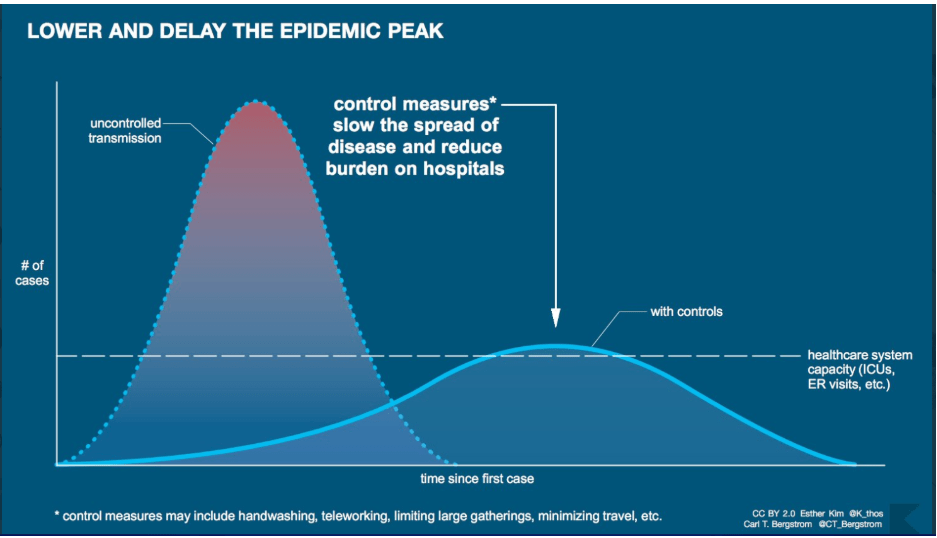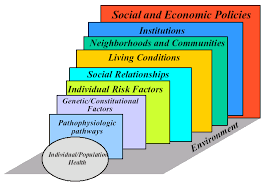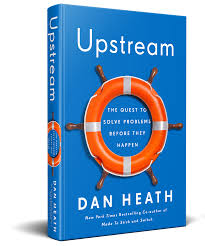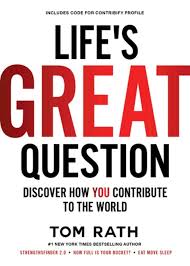
One Peacebuilder’s Take on the Coronavirus
Sooner or later comes a crisis in our affairs, and how we meet it determines our future happiness and success. Since the beginning of time, every form of life has been called upon to meet such crises.–Robert Collier
 This statement was in an email sent to parents by, Augie Frattali, the principal of our grandchildren’s school. I had already begun sketching out this blog post before I read it, but it took this comment by Robert Collier to focus me. I had never heard of Collier and probably never would have if my step-daughter hadn’t forwarded that email. It turns out that he was a self-help author who wrote in the first half of the twentieth century.
This statement was in an email sent to parents by, Augie Frattali, the principal of our grandchildren’s school. I had already begun sketching out this blog post before I read it, but it took this comment by Robert Collier to focus me. I had never heard of Collier and probably never would have if my step-daughter hadn’t forwarded that email. It turns out that he was a self-help author who wrote in the first half of the twentieth century.
Despite the fact that it’s a century old, the statement sums up the ways I’m reacting to the current crisis facing the world and is framing my first reactions to the global pandemic.
Alas, I found no way of writing this so that the thesis–or punch line–could come first.
Alas, too, that means that you have to at least skim the whole thing before you get to my suggestions.
How Are We Reacting?
To see why, let’s start with a series of emotions that I’m feeling and hear expressed by lots of the people I am interacting with electronically
- Confusion since it’s hard to tell what’s going on, even if you’ve read a lot about epidemiology
- Anger toward our policy makers
- Fear because I’m over 70 and have at least one underlying chronic medical condition
- Frustration because I’ve had to put most of the initiatives I’m working on in the United States at least partially on hold
Combining the news with those emotions and with the implications of Collier’s statement, this is where I end up
On Coronavirus Itself–I Don’t Have Much to Say
Part of the frustration lies in the fact that little of what I know as a peacebuilder can help us figure out what to do in this crisis–or so it seemed at first glance. I’ve done enough reading on epidemics and their spread to know that the exhortation to “flatten the curve” is the goal we should all be working toward.
But, when you get down to it, I can’t say much of anything intelligent about self-isolation, flattening curves, panic buying, or anything else that we are dealing with. That left me without a clear sense of what I could do, especially in the short run when I’m holed up at home and know I shouldn’t go see my grandkids who live around the corner.
Collier’s Statement
Then I read Collier’s statement–thanks Augie!!!!!
I’m pretty sure that the coronavirus is not the most important crisis of our generation. Climate change. The rise of populism. The resurgence of racism and other forms of hatred. In the long run, they’ll matter more to us.
Yet, none of them have emerged and struck so suddenly or had as immediate an impact on our daily lives. We are now asking some basic questions few of us dreamed of asking a mere two weeks ago. Am I likely to get this disease? Can I go out in public? Can I visit my grandkids? How do I interact with my friends, neighbors, colleagues? And more?
In the end, though Augie’s use of Collier’s statement makes a lot of sense. This may not be the only crisis we face.
However, because it has come so quickly, it has forced us to deal with our “future happiness and success” more directly and more rapidly than any of those other issues that almost certainly will have a greater impact on civilization in the long run.
To use language we academics trained in the 1960s and 1970s used to use all the time, it presents us with a teachable moment.
Collier undoubtedly never heard of the two Chinese characters that are used to convey what we westerners mean by the word crisis. As peacebuilders trained in the 1960s and 1970s love to point out, they combined the one for danger with the one for opportunity.
He probably also hadn’t thought about how his statement would mesh with what we would think about evolution a century later.
Yet, just a few days into the crisis those are the directions the quote led me in.
The dangers and opportunities we face in the early 21st century are easier to see in our reactions to the coronavirus than the other issues precisely because the dangers both his so close to home and and came upon so quickly.
So, too, is our evolutionary challenge. Here, I’m not thinking about our physical evolution that will take hundreds or thousands of generation. Rather, there are ways in we can and must evolve socially, some of which should be obvious already.
As a result, I’m beginning to see two paths forward aided in part by reading two books I read coincidentally just as the crisis was unfolding.
Let me deal with them both briefly here and then extend an invitation to you.
What I Can Do Right Now
I had planned to spend much of March and April developing plans for peacebuilding projects in the United States. I had a trip to Gettysburg planned and expected to have a lot of meetings in and around Washington.
All of that, of course, is now on hold.
Building healthy relationships is at the core of any peacebuilding effort. That holds for ourselves as well as for the people we work with who are struggling to deal with the conflicts in their lives.
We’ve all gotten emails from organizations we work with suggesting that we have to find new ways of working together now that we are socially isolated.
To be honest, not many of those emails contained practical suggestions of what we could do.
So, let me sketch one out here in general terms and return to some specifics in the section on invitations at the end of this blog post.
Just before the crisis hit in earnest last week, I read Tom Rath’s new book Life’s Greatest Questions which I’ve reviewed elsewhere. Put simply, Rath makes the case that our greatest challenge is to contribute to a cause that is bigger than ourselves. He then talks about three broad areas, each of which has four subcategories as listed here:
- Creating–initiating, challenging, teaching, training
- Relating–connecting, energizing, perceiving, influencing
- Operating–organizing, achieving, adapting, scaling
Readers who have bought the book can go to his website and get a profile of your strengths within those twelve rubrics–at least as you see yourself. Even if you haven’t bought the book, you might want to visit the oddly entitled website, Contribify, and see what he is driving at.
My three key ones are my ability to connect, vision, and perceive.
So, I’ve spent the time since the Big Ten tournament was cancelled (which was one of the times that I realized just how serious the crisis is) thinking about how I can do the three things that emerged from my profile.
I’ll leave the vision for the next section.
But I’m known for my ability to work one on one with people and for my ability to connect disparate networks of people.
As you’ll see in the concluding section, that’s what I plan to do until we can go out in public again.
I suggest that you take the twelve traits in the bullet list above and figure out how the three that mean the most to you and then decide how you can actually use those skills in the days and weeks to come.
Preliminary Lessons for the Long Haul
 My third skill set–visioning–surprised me a bit, because I don’t always think of myself as the most creative person on the planet.
My third skill set–visioning–surprised me a bit, because I don’t always think of myself as the most creative person on the planet.
And, whether Rath’s platform got me right or not, this is probably not the time for charting long term visions for the future of peacebuilding–or much of anything else, for that matter.
 Nonetheless, there are some key early lessons to draw from the coronavirus crisis that could and should be part of what we peacebuilders to in the future, because they echo many of the themes that I’ve been working on with most of my colleagues at the Alliance for Peacebuilding and George Mason’s School for Conflict Analysis and Resolution.
Nonetheless, there are some key early lessons to draw from the coronavirus crisis that could and should be part of what we peacebuilders to in the future, because they echo many of the themes that I’ve been working on with most of my colleagues at the Alliance for Peacebuilding and George Mason’s School for Conflict Analysis and Resolution.
- Upstream. As his title suggests, Heath is convinced that we have to deal with the upstream or root causes of any problem. In this case, that means more than not having enough testing kits or the right public policy. Rather, we have to begin thinking and acting on the basis of understanding what it is about the entire system that got us into this mess. How can we think about things more as the product of longer term and interdependent phenomena? How can we better deal with the new reality–that we will have more and more “black swan” events that may be rare and unlikely but still have devastating consequences? How can we work together to address those issues all of which lead us to what psychologists call superordinate goals that can’t be reached unless all–or at least most–parties to a dispute cooperate with each other.
- Wicked problems. The coronavirus crisis is a classic example of what are known as wicked problems whose causes and consequences are so inextricably intertwined that we can’t solve them separately, easily, or quickly–if we can solve them at all. If there are no quick fixes, how do we shift our mindsets so that we deal with complicated problems in complex environments in ways that
- Peacebuilding starts at home. As I suggested earlier, I had been planning on spending this time working on conflict here in the United States. If nothing else, the last few days have convinced me, yet again, that conflict disrupts life here as well as in the Global South where most of my colleagues have done most of their work over the years. How, then, does the coronavirus lead us to rethink the ways we work in the United States, United Kingdom, Italy, and the other advanced industrialized democracies that are being shaken by the outbreak.
Again, this is probably not the time to do in depth analyses along these lines, in part because they do lend themselves to a degree of blaming and otherwise finger pointing that probably are not what we need right now.
Still, it is worth our while as peacebuilders to spend some of our down time working together to tease out more of those lessons and, in the process, begin laying plans for what we do next when we can physically work together again.
An Invitation
So, that leads me to what I’m going to do to take advantage of my alleged skills as a visionary empath and network builder.
During one bout of insomnia over the weekend, I remembered that I had organized a series of group discussions in the aftermath of 9/11. At the time, online forums were unusual and expensive to set up so I just created a few email lists and had people talk to each other using the “reply all” function on their emailers.
Today, we have a lot more technological options, including using video.
So, I’m willing to use my Zoom.us account and other asyncrhonous tools to start at least three discussion groups that cover:
- How we are dealing with the crisis ourselves
- How we can strengthen and expand existing networks of peacebuilders
- How we can better tease the lessons out of the crisis that can help us plan what we do next
Feel free to suggest your own topics for discussion.
If you would like to participate, just send me an email at chip@charleshauss.info and we’ll go from there.
The views and opinions expressed in this article are those of the author and do not necessarily reflect the official policy or position of the Alliance for Peacebuilding or its members.
Also published on Medium.

